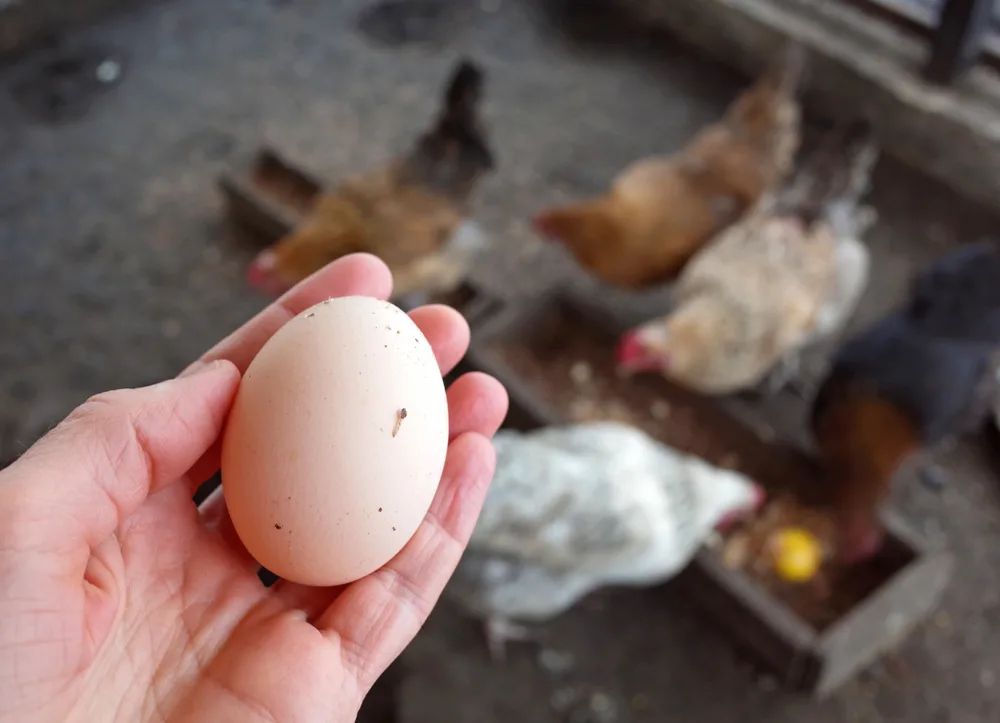
Keeping chickens on your homestead gives you far more than just eggs (and potentially meat).
Chickens also help to incorporate organic matter by scratching, they eat pests that would otherwise plague your property and, of course, they ‘recycle’ nutrients and provide their manure to fertilize your garden.
Chicken manure is a valuable soil amendment for your growing areas.
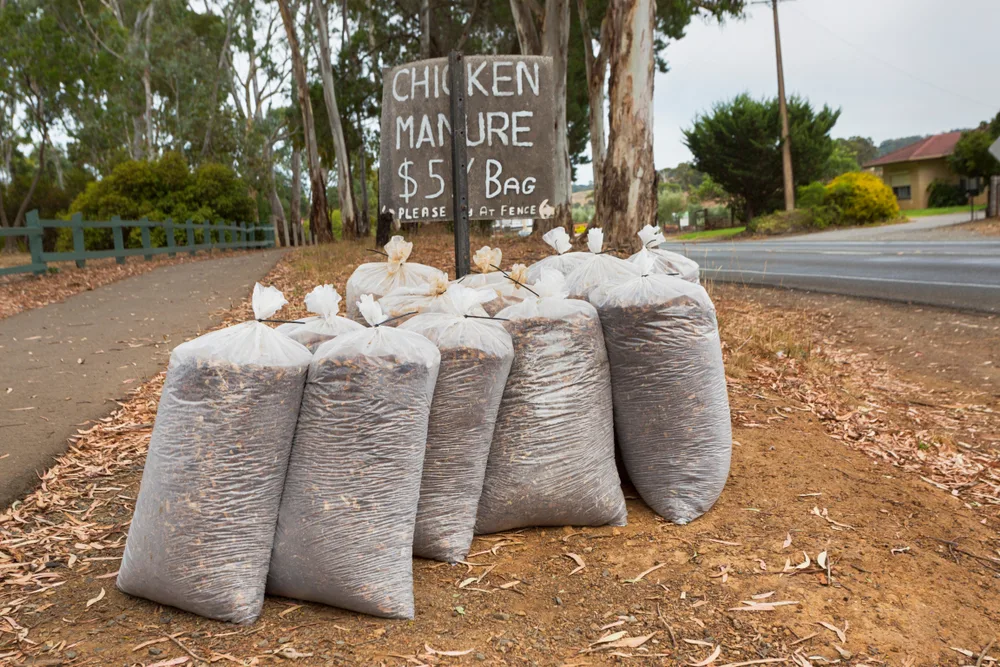
If you keep a flock, your chickens’ manure is a valuable and free resource. But using chicken manure in the garden is not a case of simply spreading fresh manure on the soil. It is important to understand the properties of the manure, and to age it or compost it before it is used.
If you don’t keep chickens in your garden, you are missing out! But you can still use chicken manure in pellet form to enrich your garden.
Whether you have it as a byproduct of your poultry, or buy it in, using chicken manure in the correct ways can bring great benefits to your garden.
The Properties of Chicken Manure
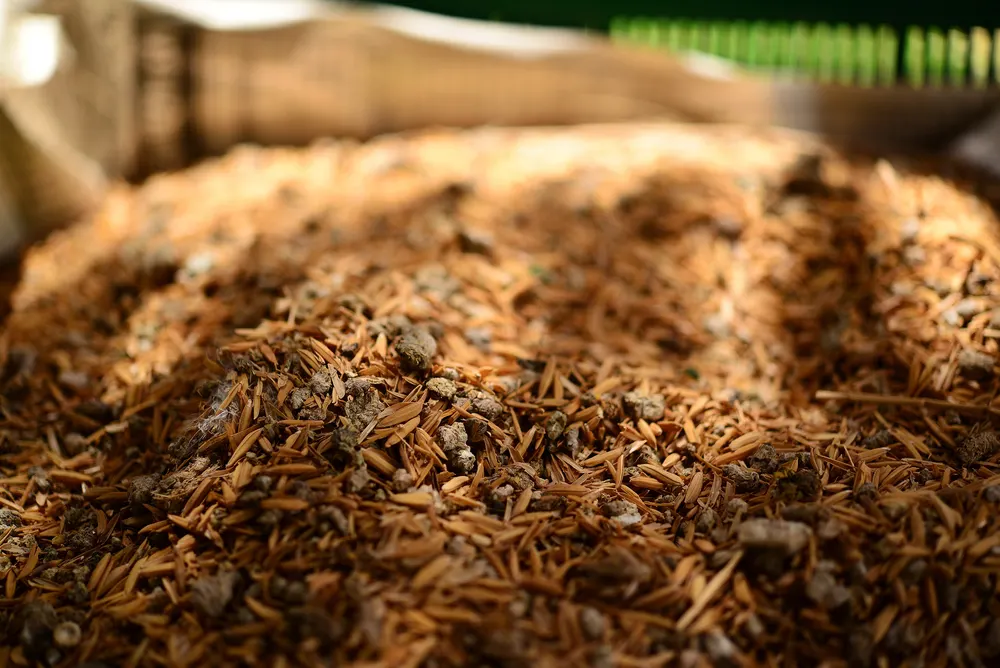
Chicken manure is an excellent source of nitrogen – one of the three main nutrients essential for plant growth. It also has reasonable amounts of phosphorus and potassium and it also has smaller quantities of other plant nutrients – including calcium, for example.
When we talk about how good a manure or some other soil amendment is as a fertilizer, we tend to use a ratio known as NPK. This gives the percentage nitrogen, phosphorus and potassium content of the material.
Fresh chicken manure is very variable in its NPK values, since so much of it depends on the diet of the animals and conditions in which they were kept.
It also depends on how long it has been rotted or composted before use. (And chicken manure must be composted before use, as we will go on to discuss a little later in this article.)
Typically, chicken manure won’t have NPK ratios that are as high as synthetic fertilizers. (Though they are higher than the manures of horses, cattle or other livestock.) But synthetic nitrogen fertilizers are hugely damaging to the environment – both in their manufacture and use.
Chicken manure (when used correctly) can add vital nutrients and unlike synthetic fertilizers, it can also aid your garden in other ways.
Adding a well aged chicken manure to your garden can not only increase its fertility but can also improve soil structure. It is an organic matter that can improve drainage in heavy clay soils, and help free-draining soils by improving water retention.
Using chicken manure also encourages a healthy population of soil biota that keep the soil web functioning as it should.
Chicken Manure Pellets
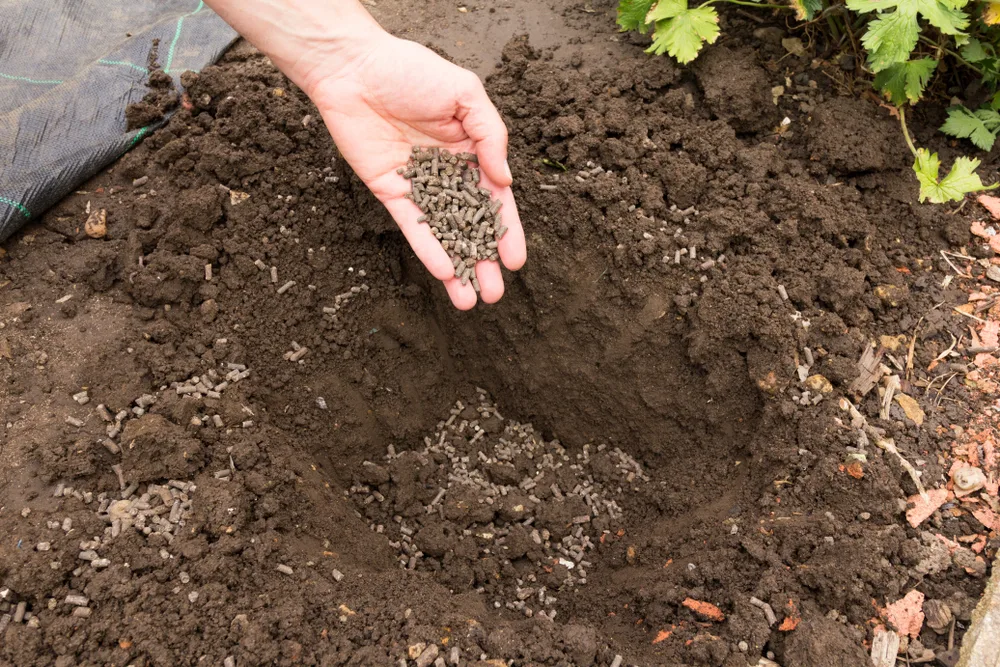
You can also buy chicken manure commercially in dried and pelleted form.
Chicken manure pellets are a very useful nitrogen rich fertilizer. They typically have NPK values of 4 -2 -1. (4% ammoniacal nitrogen, 2% phosphorus pentoxide and 1% potassium oxide).
However, while chicken manure pellets can improve garden fertility, it is important to recognise that it will not have the other soil amending properties of manure from a flock kept on your homestead.
Why You Should Not Use Fresh Chicken Manure Directly in Your Vegetable Garden
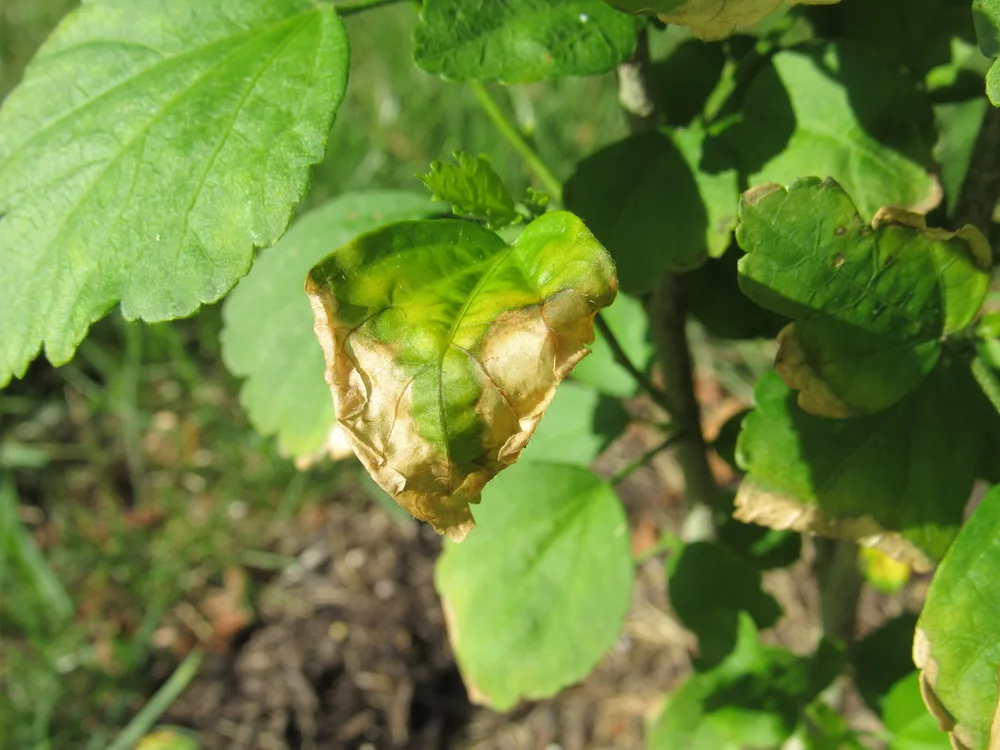
Though chicken manure can be very useful in the garden, it is not used directly. There are a number of reasons why it is not a good idea to spread the manure directly around your edible garden.
Firstly, and most importantly, like other manures, chicken manure can contain bacteria and other pathogens. Some of these, like salmonella, can pose a serious threat to human health.
It is very important to wear gloves when handing the material, and to wash hands thoroughly if you do come into contact with it to avoid contamination.
The pathogens that pose a risk to humans won’t harm plants but they can remain in soil over longer periods and can infect you by getting onto or even into the plants you grow.
Secondly, fresh chicken manure is also high enough in nitrogen that it can ‘burn’ plants, and may even kill them. The roots of a plant can be damaged if they come into contact with too nitrogen rich a material.
Lastly, though it is lesser than the above concerns, there is the issue of smell. Fresh chicken manure can be rather pungent and it is certainly not something that you want in proximity to edible plants, nor in regularly tended areas.
Fortunately, it is very easy to compost chicken manure so that it is safe for people and plants and can be spread around your growing areas or used in other ways in your garden.
Composting Chicken Manure
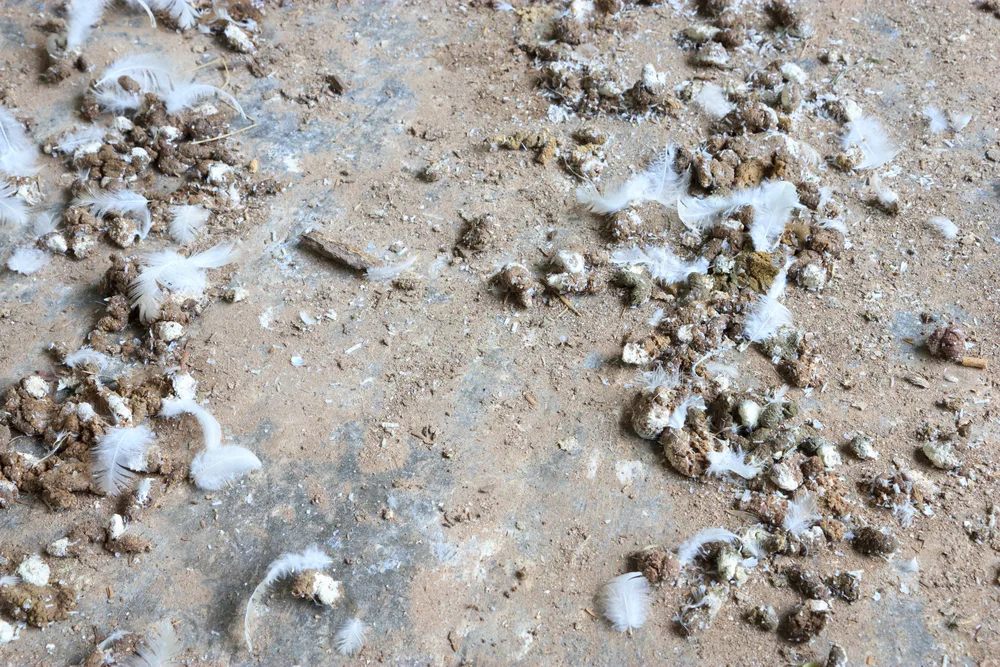
Composting chicken manure takes either heat or plenty of time.
Hot Composting
The first, and quickest way to compost chicken manure is using a hot composting system.
In a hot composting system, you heat chicken manure to at least 130 F for at least 15 days. The higher temperatures in such systems mean that the material breaks down more quickly and pathogens usually die at these higher temperatures too. This significantly reduces the risk of contamination.
Interestingly, you can consider making use of the heat generated by decomposing manure. One idea is to make a hot bed for winter growing. (In a hot bed, chicken manure and straw/wood chips or other carbon rich material are contained, below an area of compost/ top soil into which seeds or plants can be placed.
You can also run water pipes through a hot composting pile to heat water prior to running those pipes into the growing areas in a greenhouse. This is one way to heat the space. This means more can be grown over winter in colder climates.
Cold Composting
Alternatively, you can use a typical cold composting heap or bin. In this case, materials break down much more slowly. The manure is safe to use only after a much longer period.
It is best to compost for a year before using the material in your garden.
Successfully composting chicken manure can also be achieved through a deep litter bed in a coop or run. This is basically a form of composting in place.
As in typical cold composting, a deep litter bed involves combining the right ratio of carbon and nitrogen rich materials. Getting the right ratio allows them to successfully break down. As the materials break down, add new bedding material on top. Later, the bedding and manure combo make a compost that you can use in your garden.
The type of bedding used will dictate the ratio of bedding to manure. But since chicken manure is so high in nitrogen, it is important to make sure there is enough carbon rich material (wood chips or shavings, cardboard, dry leaves etc..) You will likely use at a carbon: nitrogen ratio of at least 1:1, or maybe even 2:1 in certain circumstances.
Using Composted Chicken Manure in Your Garden
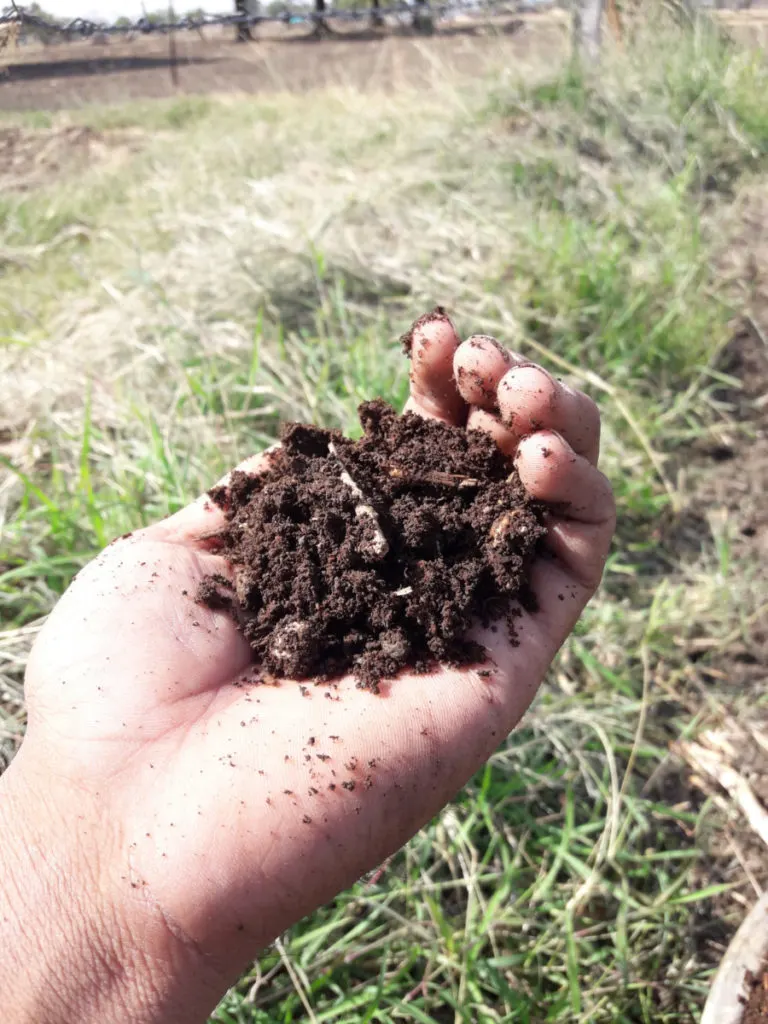
Once the chicken manure is composted, you can use it as you would any other compost in your garden.
In a no dig garden system, the organic material is spread on the surface of your garden, rather than being tilled or dug into the topsoil layers.
The benefits of this are that the soil ecosystem is left relatively undisturbed, and soil biota are able to continue to do their jobs. Spread the material on the soil surface, and the micro-organisms and other life in the soil should do the rest of the work for you – recycling the nutrients into the system and incorporating the material into the soil.
Typically, the best times to use a chicken manure fertilizer on your garden are in the spring and fall. In spring, you can top dress beds before sowing or planting. You can also use the composted manure to make new garden beds, hugelkultur mounds or other growing areas.
In fall, you can also spread manure. Do this soon after removing nitrogen hungry crops, and before sowing winter crops or green manures to protect the soil over the winter months.
Chicken Manure Liquid Fertilizer
Another way to use your composted chicken manure is to make a liquid fertilizer to give nitrogen-hungry leafy crops a speedier boost over the summer months.
Make this in the same way as any other compost tea – by combining some of the compost with water. A mulch or top dressing of chicken manure is a slow-release fertilizer. Nutrients are released and made available to plants slowly over time. A liquid fertilizer works more quickly.
Which Plants Benefit From Chicken Manure Fertilizer
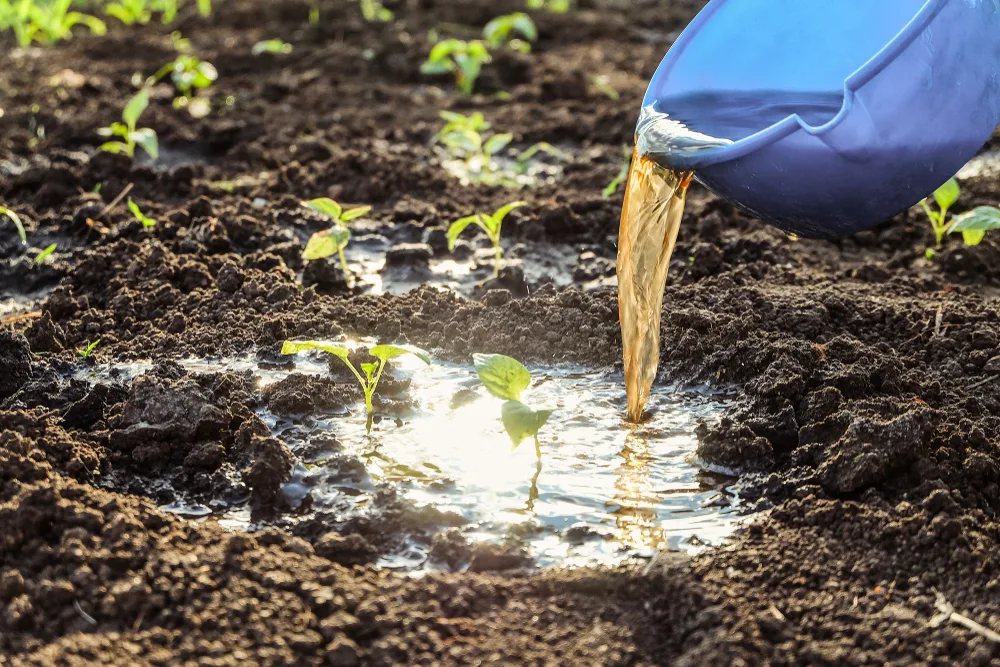
The plants that will benefit from chicken manure are those which require a lot of nitrogen. Generally, the plants with the highest nitrogen requirements are leafy plants, such as brassicas (annual brassicas or perennial brassicas).
However, a wide range of plants will benefit from the nitrogen and other nutrients the manure can provide.
Don’t add chicken manure to ericaceous (acid loving) plants such as azaleas, hydrangeas or blueberries, as it typically has a slightly alkaline pH.
It is also important to remember that chicken manure can also enrich a forest garden or fruit garden without the need for any intermediary steps.
As chickens forage and scratch beneath fruit trees and bushes, they will provide smaller amounts of fertilizer for free. This can be particularly beneficial for perennials with high nitrogen needs, like plum trees and blackcurrants, for example.
I keep a flock of up to 15 rescue chickens in my productive forest garden, for their manure as well as for their eggs.
Chicken manure, when handled properly, can be a very useful resource to a gardener. Just one more reason why chickens can be such a useful addition to a homestead or any garden system.
Read Next:
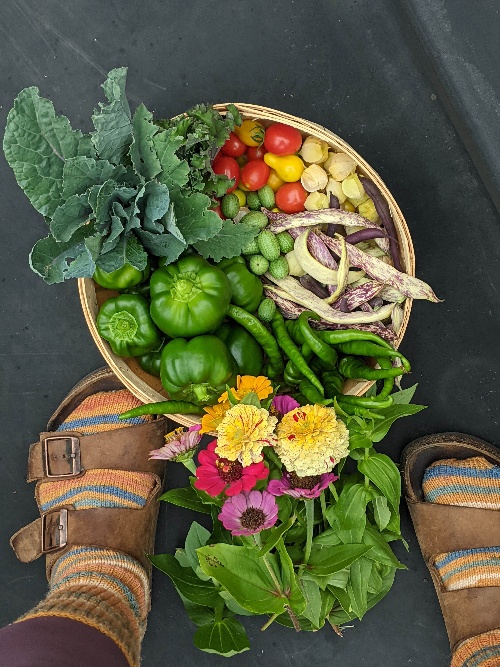
Get the famous Rural Sprout newsletter delivered to your inbox.
Including Sunday musings from our editor, Tracey, as well as “What’s Up Wednesday” our roundup of what’s in season and new article updates and alerts.


